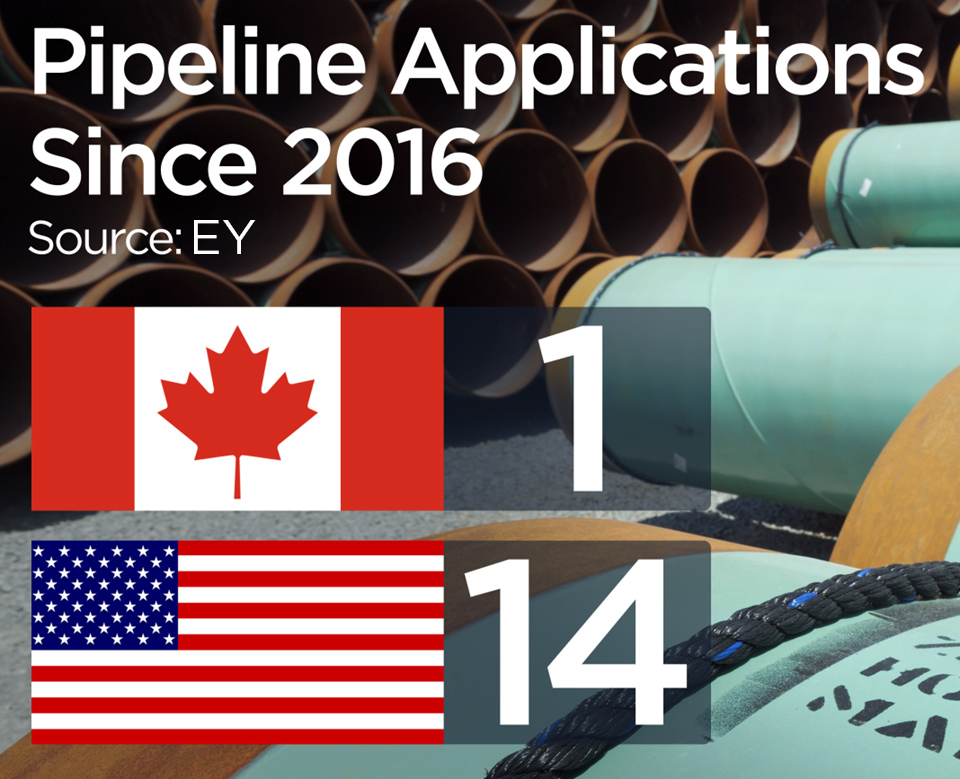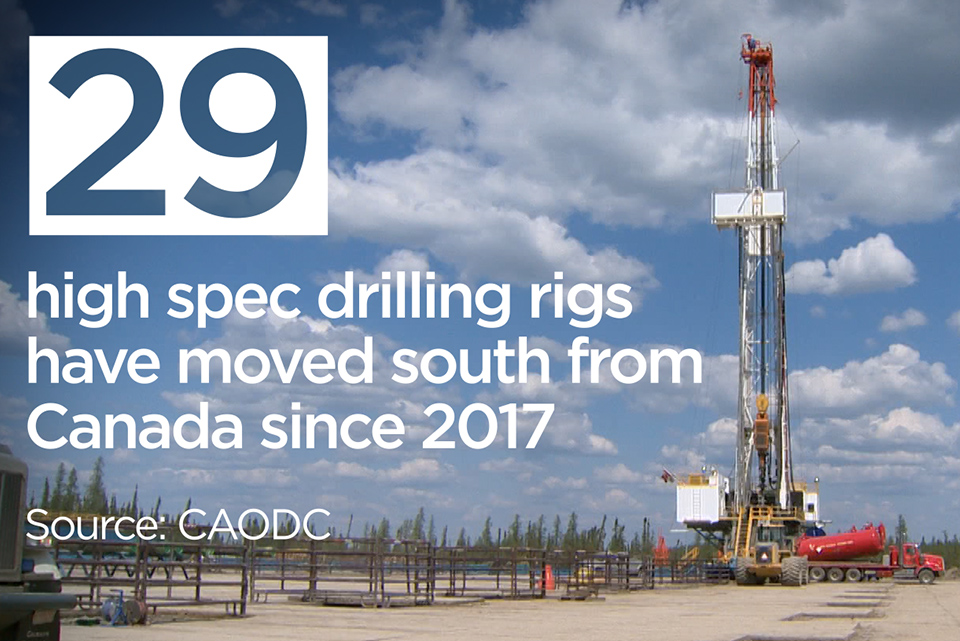This is the first part in a series about Canadian oil and gas workers moving to Texas. Click here to read Part 2 and Part 3.

Alberta is known for its energy and the accompanying booms and busts because of it.
But ever since the last bust — when world oil prices collapsed in 2014 and tens of thousands of energy workers lost their jobs — Alberta has struggled to regain its footing.
That has many looking south to survive, and thrive.
Calgary-based Osprey Informatics, a tech company that services the oil and gas industry, opened a Houston, Texas office in January.
It budgeted to do 10 per cent of its business in the U.S. this year, and 90 per cent in Canada. But 2020, it’s forecasting 70 per cent of its business to come from the U.S. and 30 per cent in Canada.
LISTEN BELOW: Global News’ Dallas Flexhaug joins the Ryan Jespersen show on 630 CHED
Paul Ritchie, the COO of the company, has spent half of his year in Houston: “I can tell you by my hotel rewards points I’ve spent a lot of nights there.”
“I almost feel like a citizen of Houston.”
And soon he will be — Ritchie plans to move to Houston next summer and said Texas is welcoming him with open arms.
“I wouldn’t have left Canada without the opportunity that sits in front of us right now.
“Canadian companies are so well respected that it’s not even a blip in the road when you’re dealing with somebody. It’s like, ‘Oh, you’re a Canadian company — it’s going to be good, and you’re going to be nice to me.'”

Get daily National news
Oil analysts say Ritchie’s case is far from unusual. Tim Pickering with Auspice Capital Advisors Ltd. said there’s definitely an energy exodus happening.

“We all know the big names that have left. There are hundreds of smaller companies that are very significant employers here in Calgary that, 50, 60, 70 per cent of their revenues are coming out of the United States and they had no choice.”
“This isn’t something that they wanted to do, but if the business is in the U.S. you are going to go where that business is.”
“It’s just a lot easier in Texas in a lot of ways,” Pickering said. “There’s no real edge to being in Alberta and that’s painful to say.”
Pickering, referencing a recent, EY report, said Canada has had one pipeline project application since 2016, compared to 14 in the U.S.
There’s been a lot of uncertainty around the energy sector in Canada, especially in the last five years. Canadian oil continues to sell at a discount compared to the world oil price.
There are more regulations, like Bill C-48 – the northern B.C. coast tanker ban – and Bill C-69, known by the industry as the “no more pipelines bill.”
There is also a lack of market access and mounting skepticism over timelines around when projects – like the Trans Mountain Pipeline expansion — will be built.
Canadian Association of Oilwell Drilling Contractors president Mark Scholz said it’s been a tough five years, especially for the drilling sector.
“Since 2017, we have lost 29 high spec drilling rigs to the United States. Pre-2014 we had approximately 900 drilling rigs in Western Canada. At the end of 2020 we are predicting to have less than 500.”
Scholz said he has watched several families in Alberta struggle. So has Paul Ritchie.
“I have close friends that haven’t worked in two years. They are Masters of Engineering and they’re driving an Uber now,” Ritchie said.
Ritchie said he’s up for the adventure of moving to a new country, and to a city that reminds him of the young, vibrant place Calgary used to be 15 years ago.
“Houston has a Canadian Chamber of Commerce, the Canadian Consulate is there, they have three trade commissioners there. They are very active in pushing Canadian companies to the U.S. market.”

Scholz said conversations are happening all over the province in businesses, wondering if it’s worth it to keep their head offices in Alberta.
“I really worry about the future of this industry.”
“I worry about the future of Alberta; the future of the country,” Scholz said.










Comments